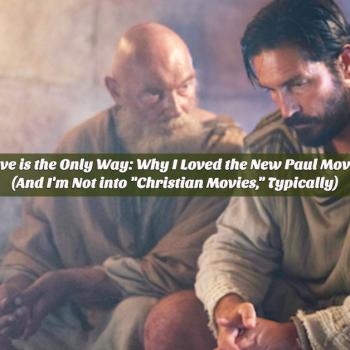The following is a book review/overview. I’d like to hear your thoughts on the concepts presented…
In his book “Good to Great and the Social Sectors: why business thinking is not the answer,” Jim Collins begins with the provocative statement:
“We must reject the idea–well–intentioned, but dead wrong–that the primary path to greatness in the social sectors become “more like a business (1).”
This suggestion comes out of the deep-rooted conviction that most businesses are not structured in a way that allows them to become excellent. These sorts of organizations, are mediocre and why would any social organization want to replicate something that is not great?
A core assumption that Jim Collins brings to this discussion is the need for new language. It is not a “one-for-one” correlation between these 2 sectors. To take business language and got it as though it will work in other settings makes a great mistake. Rather, both the public and private sector ought to embrace a “language of greatness.” With a critical understanding of greatness as the foundation of the organization, a framework can be articulated that focuses on 5 basic principles.
Defining “great”––calibrating success without business metrics. One of the key differences between a business and social sector-based organization is how money plays into the overall goals of things. The business has money as old its input and output. The social sector has money as only primarily an input. Money does not determine the greatness of outputs. Because of this, that which is great is measured differently in the private sector. It takes discipline, therefore, to measure what greatness actually looks like. A good leader must understand how to quantify results and keep track of progress.
Level 5 leadership––getting things done within a diffuse power structure. Collins suggests that a level V leader “build enduring greatness through a paradoxical blend of personal humility and professional will (12).” Kingdom leaders are driven yet humble. They understand that ruling with an iron fist will not lead to an ethos conducive for Christian community. Yet, as their passion becomes evident they will point people towards the cause and not themselves.
First who––getting the right people on the bus within the social sector constraints. In social organizations it is important to get the right people on the team. These are people who believe in the vision of the organization/church. This is much different than the business world and that there is no ideal hiring method and “you can only know for certain about a person by working with that person (15).” He goes on to say: “Time and talent can often compensate for lack of money but money can never, save for lack of the right people (17).”
The hedgehog concept––rethinking the economic engine without a profit motive. It is helpful to imagine the “hedgehog concept” in social sectors as 3 concentric circles. One circle asks, “What are you deeply passionate about?” This is a question of passion and basically discerning core values and mission. The 2nd Circle asks: “What drives your resource engine?” This question essentially is wondering about how our organization utilizes time, money, and its brand. The 3rd circle asks, “What can you be best at in the world?” It is asking about what makes our organization or church unique and position to offer services to the planet that perhaps others cannot do in the fashion that we can.
Turning the flywheel––building momentum by building the brand. The flywheel is a metaphor for understanding how a social organization creates momentum. At the beginning, it takes a lot of effort to even turn the wheel. But after a while as we continue to inch in a forward direction begins to move faster and eventually makes one rotation, then two, then three, and so on. Eventually there’s enough momentum for the organization to reach several breakthroughs. “Success breeds support and commitment, which breeds even stronger success, which breeds more support and commitment–round and around the flywheel goes. People like to support winners (24)!”
An organization in the social sector ought to have as its organizational goal to build pockets of greatness. This means that we should strive to create an atmosphere that allows greatness to be the foundation and the outcome. This is only possible with discipline, intentionality, and by making a choice to be more than just good–but to be great!
For those of you involved in the church world. Do you think that some of these ideas translate into how we think about organizing our faith communities? How so / not?











